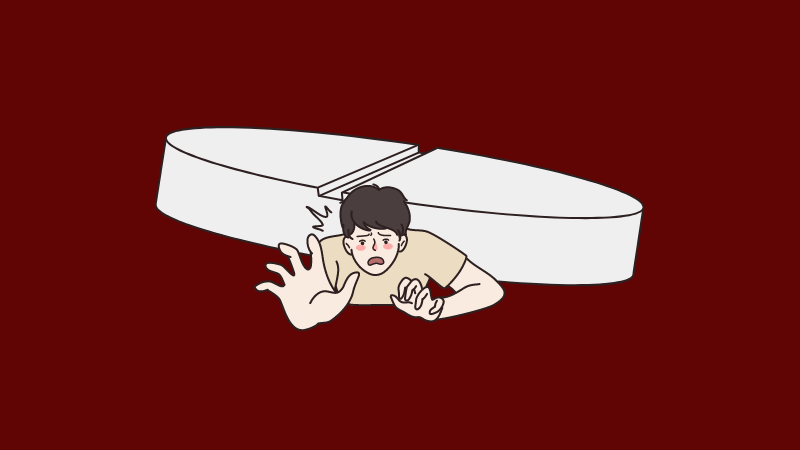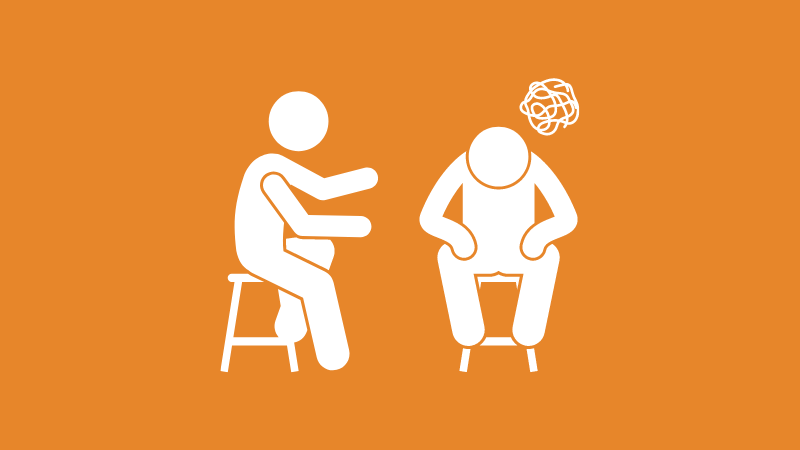Table of Contents
Affiliate link notice: As an affiliate of BetterHelp and other third-party vendors, We will receive compensation if you make a purchase using the links provided on this page. For more information, visit our disclosure page.
Last Updated on December 1, 2022 by Randy Withers, LCMHC
Psychiatric nurses are some of the most important professionals in the healthcare industry. They are responsible for caring for patients with mental health problems to ensure their physical and psychological well-being. While caring for people with mental health issues can be intimidating and challenging, it can also be extremely rewarding and fulfilling. This is especially true when you see patients improve and gain back their quality of life.
As the number of those diagnosed with mental illness increases and the stigma often associated with mental conditions decreases, there’s increased demand for mental health nurses. However, you need to equip yourself with the necessary skills and qualities to get into this rewarding field. Online psychiatric nurse practitioner programs are a terrific way to get the training and education you need to get started.
You can develop specialized skills through an online PMHNP program to become a qualified mental health nurse. However, there are specific attributes that every psychiatric nurse needs to thrive in this field, and many cannot be taught in a class.

In this article, we’ll look at some of the essential qualities that every psychiatric nurse should have:
7 Skills Every Psychiatric Nurse Needs
1. Analytical Skills
One of the top qualities of any psychiatric nurse is the ability to think critically. As a mental health nurse, having strong analytical skills can help you recognize patterns in behaviors and thoughts in your patients and match them to different diagnoses. This way, you can effectively develop customized treatment plans to address particular concerns unique to each patient.
Being able to think critically when assessing patients is what enables a psychiatric nurse to create more personalized and effective treatments.
2. Empathy
Unlike acquired skills, empathy is a quality that every mental health nurse should possess to understand their patient’s feelings. Empathy allows you to identify a struggling person and show them compassion. As a psychiatric nurse, you should empathize with patients by being willing to feel what the other person feels while avoiding over-involvement.
Having this attribute when dealing with mental health patients can make it easy for you to relate to them and give the best care possible.
3. Excellent communication skills
Apart from being empathetic, mental health nurses should have strong communication skills to communicate effectively and interact with their patients. This means listening to your patients and understanding their concerns actively, and then clarifying or responding respectfully and comfortably.
As a psychiatric nurse, being an active listener allows you to recognize any changes or improvements to your patient’s condition.
Good communication skills also enable you to explain and clarify the treatment plan details to the patient, including assessment and diagnosis. With excellent communication skills, you can better explain to your patient how the treatment plan will help improve their condition. You’ll also be able to interact, collaborate, and build relationships with your colleagues.
4. Being Non-judgmental
While humans are judgmental by nature and that’s how we make sense of the world, it’s typically not an attribute any good mental health nurse should have. As a psychiatric nurse, you shouldn’t make decisions about a person based on their race, color, religion, opinion, or even their way of dressing.
Being judgmental separates you from the rest of the people, which isn’t the best thing, especially when you’re dealing with mental health patients. That’s mainly because patients need to trust that you’ll do everything within your ability to improve their condition, regardless.
As a good psychiatric nurse, you need to look at your patients beyond their immediate appearance, background, or lifestyle. That means being able to acknowledge and accept them as they are. You should also be respectful of their feelings and desires at all times, so you can provide non-judgmental, holistic care. This helps affirm your patient’s dignity and give them a voice in their treatment care.
It is also critically important that you do not take situations personally, since it could result in burnout. You should be able to handle your emotions, whether you’re feeling sad, frustrated, or angry. Being self-aware can help you recognize your reactions and the impact they can have on the person you’re dealing with. If you disagree with a patient’s opinion, ensure you do it without being judgmental.
5. Adaptability
Nursing involves working in a fast-paced environment, which can be challenging if you cannot adapt to the ever-changing work settings. As a psychiatric nurse, you should be willing to change to suit different conditions. Working in an ever-changing environment means you’ll constantly deal with new psychiatric nurses, new nursing students, doctors, and even new procedures and policies.
You’ll also often encounter individuals who are misunderstood by society and their loved ones. It is crucial that you be able to adapt easily and fast enough to different patients, mood changes, and different disorders. You also must be open-minded, curious, flexible, and able to see and think ahead.
6. Patience
Most individuals with mental illnesses, including those with severe psychiatric cases require long-term professional care and management to improve their condition. As a mental health nurse, you must have a lot of patience and understand that healing isn’t always linear but sometimes can be gradual and intermittent.
You must be able to manage and acknowledge that each case or person has a unique timeline. Additionally, goal-setting and benchmarks need to be realistic and patient-focused for each individual, based on their history and baseline. Patience is a critical attribute for mental health nurses since some psychiatric patients can be incredibly challenging to work with.
7. Resilience
Psychiatric nurses need to be resilient in their work, so they can keep going even when things become tough. You need to be able to deal with the emotions you’re likely to experience in your line of duty in a professional and healthy manner. That implies separating yourself from your job and not being too emotionally involved.
On top of being resilient, you should always try to remain positive and upbeat even during tough times. Maintaining a positive attitude is crucial as a mental health nurse since your patients will typically feed off of your energy. Having psychosocial skills together with being strong-willed is what every nurse needs to deliver the best care possible.
Final Thoughts
The job of a psychiatric nurse can be intense and challenging. You need to have strong skills and qualities to effectively provide quality patient care. These qualities include being able to think critically, communicate effectively, and empathize with your patients.
You should also be resilient and positive to provide the best care to your patients even when things get tough. Other important qualities every mental health nurse should have include being warm, considerate, and engaging.
If you have these skills, consider pursuing a job as a psychiatric nurse. The healthcare field is suffering from critical shortages in almost every area. Now is the time to make the move that is best for you!








